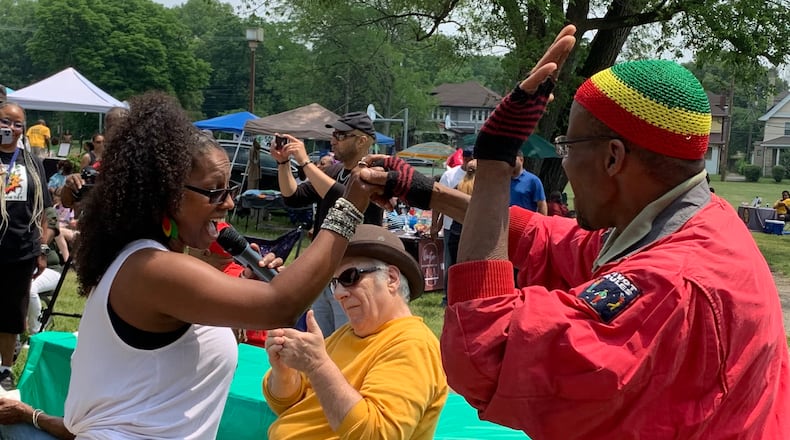Saturday’s event featured a parade, live music throughout the day, vendors, food trucks, and several organizations, including Premier Health, the Dayton Metro Library’s Bookmobile, and others.
“Our ancestors were able to do a lot of things because they went together,” said “Mama Nozipo” Glenn, during the festival’s opening libations. “We have to write our own story, because if we don’t, somebody else will write it for us.”
While the event is an opportunity to showcase and celebrate Black joy, it’s also about finding ways to improve the lives of people in their communities.
That particular tradition extends back to the first Juneteenth, when the last slaves in the former Confederacy were freed in Galveston, Texas.
Abraham Lincoln issued the Emancipation Proclamation on Sept. 22, 1862, declaring “on the first day of January . . . all persons held as slaves within any State, or designated part of a State, the people whereof shall then be in rebellion against the United States shall be then, thenceforward, and forever free.”
The proclamation applied only to states that had seceded from the Union, leaving slavery to remain unchallenged in the border states.
More than two years later, on June 19, 1865, Major Gen. Gordon Granger came to Galveston, to inform Texans that Lincoln two years earlier had freed the slaves, and to press local slave owners to comply with his directive. At the time, an estimated 250,000 slaves lived in Texas, according to historian Henry Louis Gates, Jr.
“They got the word that they were free and even then, they had nothing to start with,” Domineck said. “They set you free, but what does that mean? You don’t have a horse, you don’t have food. You don’t have anywhere to go, no land to claim. So we wanted to bring all the organizations that are involved in empowering neighborhoods to this event, to bring information to people.”
About the Author

